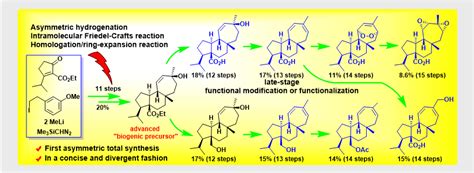Revolutionizing the Pharmaceutical Industry
The pharmaceutical industry is a vast and complex global enterprise. With billions of dollars invested in research and development, the industry is constantly seeking ways to improve the efficiency, efficacy, and affordability of its products. One of the most cutting-edge developments in this field is the total synthesis of complex natural products, pioneered by Chinese chemist Professor Li Jian.

Total synthesis is the process of creating a complex molecule from simpler starting materials. This process is notoriously difficult, and only a handful of natural products have been successfully synthesized in their entirety. However, Professor Li’s innovative approach has revolutionized the field, making it possible to synthesize complex molecules with unprecedented efficiency and accuracy.
Li Jian’s Background and Accomplishments
Professor Li Jian is a renowned chemist who has made significant contributions to the field of total synthesis. He is currently a professor at Tsinghua University in Beijing, China. He has published over 200 papers in top scientific journals, and he holds over 50 patents.
Li’s most notable accomplishment is the total synthesis of artemisinin, a powerful antimalarial drug. Malaria is a deadly disease that affects millions of people worldwide, and artemisinin is one of the most effective treatments available. However, artemisinin is a complex molecule that is difficult to synthesize. Li’s total synthesis of artemisinin was a groundbreaking achievement that made the drug more widely available and affordable.
The Li Jian Approach to Total Synthesis
Li’s approach to total synthesis is based on a number of innovative concepts, including:
- Retrosynthesis: Li starts by breaking down the target molecule into simpler building blocks. He then designs a series of chemical reactions that can be used to assemble these building blocks into the final product.
- Modular Synthesis: Li uses a modular approach to synthesis, in which complex molecules are assembled from smaller, pre-synthesized modules. This approach makes it possible to synthesize complex molecules with greater efficiency and accuracy.
- Flow Chemistry: Li uses flow chemistry to perform his reactions. Flow chemistry is a technique in which reagents are pumped through a continuous flow reactor. This approach provides better control over the reaction conditions, which leads to higher yields and fewer side products.
Applications of Li Jian Total Synthesis
Li Jian’s total synthesis approach has a wide range of applications in the pharmaceutical industry. These applications include:
- Drug Development: Total synthesis can be used to develop new drugs or improve existing drugs. By synthesizing complex molecules in the laboratory, researchers can study their structure and activity and identify new lead compounds for drug development.
- Natural Product Production: Total synthesis can be used to produce natural products that are difficult or impossible to obtain from natural sources. This approach can be used to make rare or endangered natural products more widely available for medicinal purposes.
- Chemical Biology: Total synthesis can be used to create new chemical probes for studying biological systems. These probes can be used to investigate the functions of proteins, enzymes, and other biological molecules.
Future Directions for Li Jian Total Synthesis
Li Jian’s total synthesis approach is a powerful tool that has the potential to revolutionize the pharmaceutical industry. As Li and other researchers continue to develop and refine this approach, it is likely to have an even greater impact on the development of new drugs and therapies.
Some of the future directions for Li Jian total synthesis include:
- Development of New Synthetic Methods: Researchers are exploring new synthetic methods that can be used to synthesize even more complex molecules. These methods could make it possible to synthesize molecules that are currently impossible to make.
- Application to Other Fields: Li Jian’s total synthesis approach could be applied to other fields, such as materials science and energy. These applications could lead to the development of new materials and technologies.
- Education and Training: Li Jian’s work is inspiring a new generation of chemists. By teaching and mentoring young scientists, Li is helping to ensure that the field of total synthesis continues to flourish.
